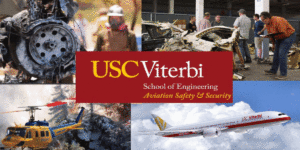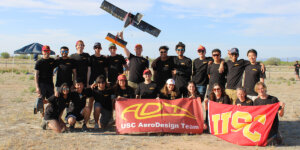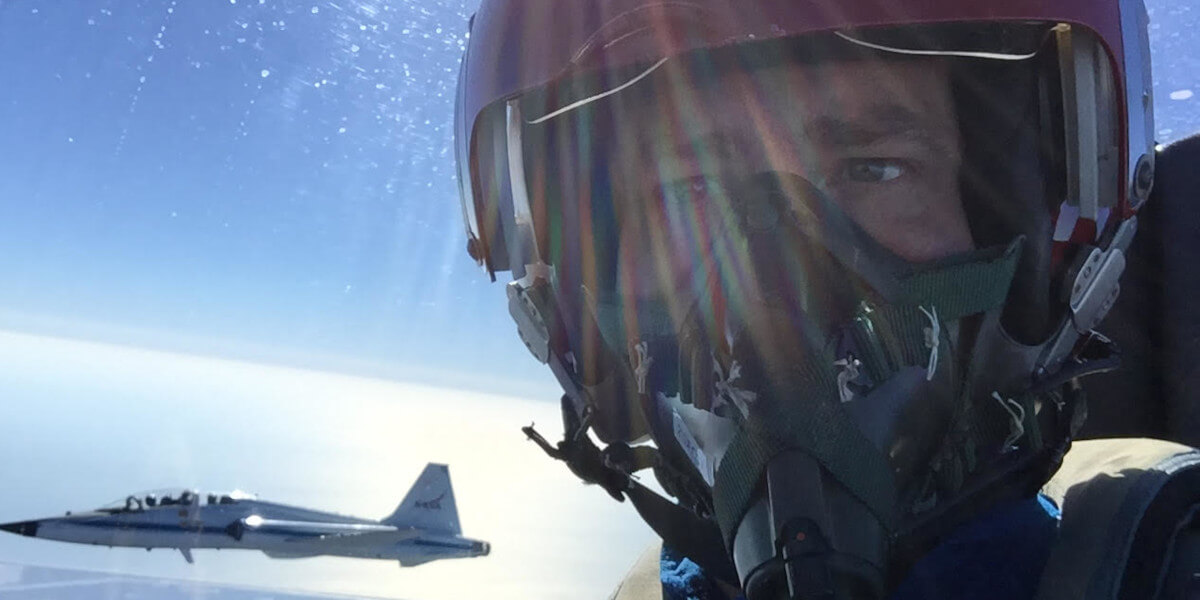
Retired U.S. Navy pilot Will “Virg” Pressley in the cockpit of the T-38 Talon. Photo courtesy of Will Pressley.
“Don’t think, just do.”
In this year’s blockbuster movie “Top Gun: Maverick,” the Navy pilots’ success in flying a dangerous mission seems to hinge on that bit of advice from Tom Cruise’s character, Captain Pete “Maverick” Mitchell.
It’s a perspective that retired U.S. Navy commander and USC Viterbi alumnus, Will “Virg” Pressley, who spent 20 years as a Navy pilot, is familiar with. “In the military, we’re trained from the beginning to make that quick decision,” he says. “It’s got to be quick, and it’s got to be right.”
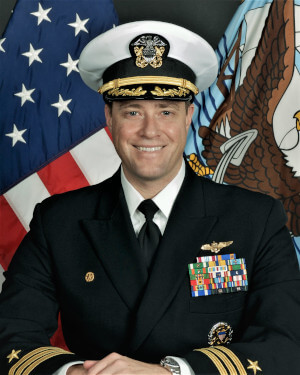
Pressley was the commander and chief pilot of the squadron VAQ-131, aka the “Lancers.” Photo courtesy of Will Pressley.
But years of experience flying and serving as an operations officer on combat missions in Afghanistan, working as an aide to the vice chairman of the Joint Chiefs of Staff and commanding an aircraft carrier-based squadron refined Pressley’s approach to leadership. “Sometimes to be right, you don’t want to be quick,” he says. “I learned how to bide my time, and wait and see how things played out before making decisions.”
For Pressley, Maverick’s impulsive, buck-the-system approach to leadership is a “Hollywood twist” that wouldn’t fly in real-life combat situations, where critical thinking and honorable service are the keys to success. Not that he doesn’t love the film. The first “Top Gun,” released in 1986, influenced his desire to become a pilot and enlist.
“Being a 12-year-old, I just thought that was the coolest thing you could possibly do,” says Pressley, who grew up in a military family.
After retiring from the Navy in 2017 — the same year he completed his master’s in astronautical engineering through DEN@Viterbi (USC Viterbi’s top five ranked distance education program) — Pressley joined NASA as a research pilot and aerospace engineer at Johnson Space Center, where he instructed astronauts in operating the T-38 Talon, a supersonic jet trainer. Today, he’s enjoying life at a slower speed (literally) as a cargo pilot for FedEx on the Airbus A300/A310.
His varied achievements, no matter which aircraft he’s flying, might best be summed up by another motto from “Top Gun: Maverick.”
“It’s not the plane. It’s the pilot.”
The theme for Veterans Day 2022 is “Honor.” What does honor mean to you?
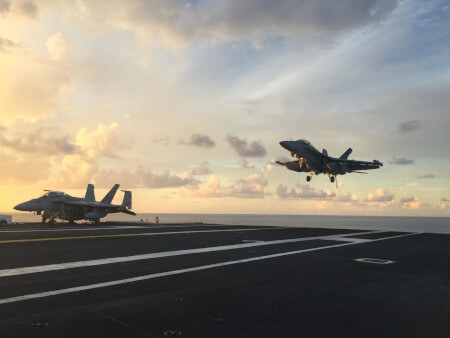
Pressley lands the EA-18G Growler on the USS George H.W. Bush. Photo courtesy of Will Pressley.
Honor really means living up to your commitments, your promises, and doing the right thing when nobody’s watching. It’s connected directly to service. It’s about: What does the country or the unit need from you? And how are you going to fill that need? Are you going to do it begrudgingly? Or are you going to do it as well as you can, and set a good example for those that might be looking up to you?
How did your studies at Viterbi help you as a pilot?
The more you develop the engineering mindset, the more you become a critical thinker. That really does make you a better pilot, because you can think critically about what you’re doing as you’re planning missions and how you execute [them]. A lot of it is about solving problems, whether they be spacecraft-propulsion problems or tactical-planning problems. Refining that problem-solving approach is something that Viterbi certainly helped me with.
What was it like earning your M.S. degree while on active duty as a squadron commander?
I’d always wanted to get my master’s in engineering and finally found a way to do it. What DEN@Viterbi allowed me to do is stay on that career track and feel like I was there at USC. I only did one class per semester because that’s really all I had the bandwidth for working active-duty jobs. I spent a lot of weekends and nights just sitting there cranking away at problems or studying for exams. It meant a lot to me to get that degree. It’s something that I’m very proud of.
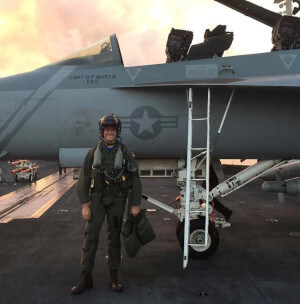
Pressley after his last aircraft carrier landing (aka “trap”) aboard the USS George H.W. Bush. Photo courtesy of Will Pressley.
What fear did you have to conquer during your years as a Navy pilot?
Landing on the aircraft carrier. That’s probably the scariest thing that you’re going to do, honestly! It never got easy. You’re really just flying instruments into the blackness. Moving the throttle a couple of inches in the wrong direction, at the wrong time, with the wrong energy state is going to put you into the back of a ship. You learn to respect it and train to it, and you never take it for granted. I still remember my last landing, last “trap.” I’ve got a picture of it. I’m standing there on the aircraft carrier deck with this big smile. The feeling that I had is one of gratitude and relief that I’d been able to do it safely for two decades.
Published on November 9th, 2022
Last updated on November 9th, 2022




